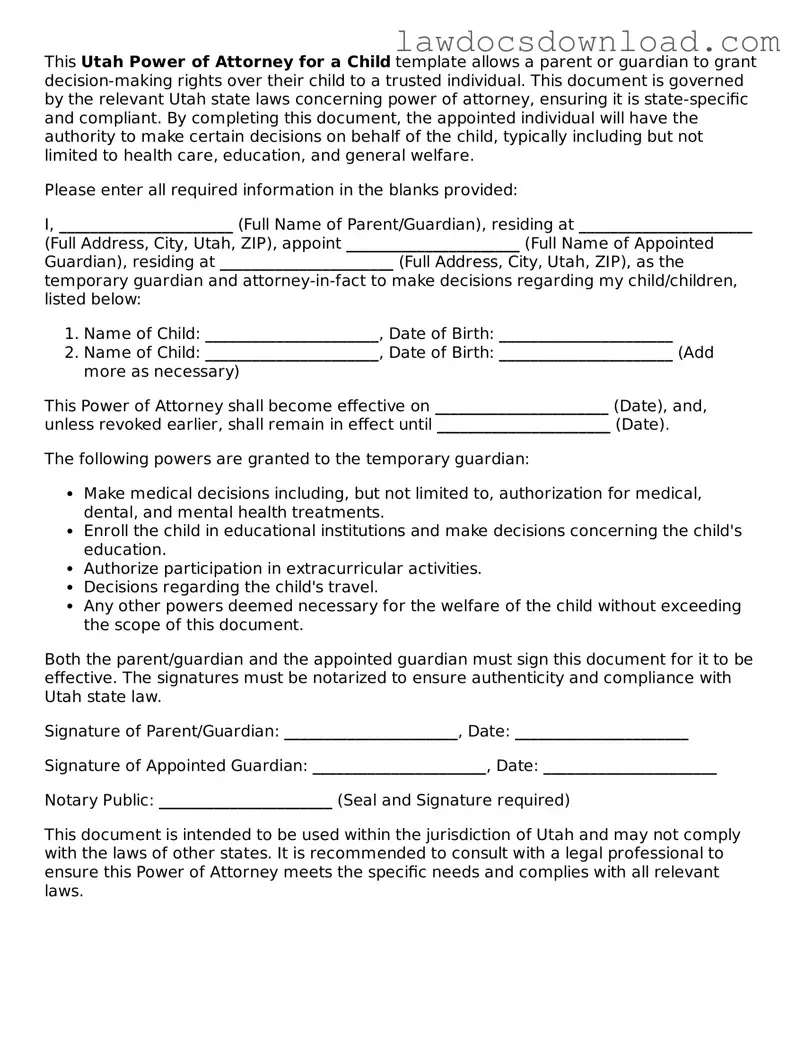Legal Utah Power of Attorney for a Child Form
The Utah Power of Attorney for a Child form is a legal document allowing parents to appoint someone else to make decisions and take actions on behalf of their child in their absence. This form is particularly useful for parents who may be traveling, dealing with health issues, or facing other situations where they cannot care for their child themselves. It highlights the trust parents place in the appointed individual to act in the best interest of their child.
Launch Power of Attorney for a Child Editor Here

Legal Utah Power of Attorney for a Child Form
Launch Power of Attorney for a Child Editor Here

Launch Power of Attorney for a Child Editor Here
or
Free Power of Attorney for a Child
Get this form done in minutes
Complete your Power of Attorney for a Child online and download the final PDF.